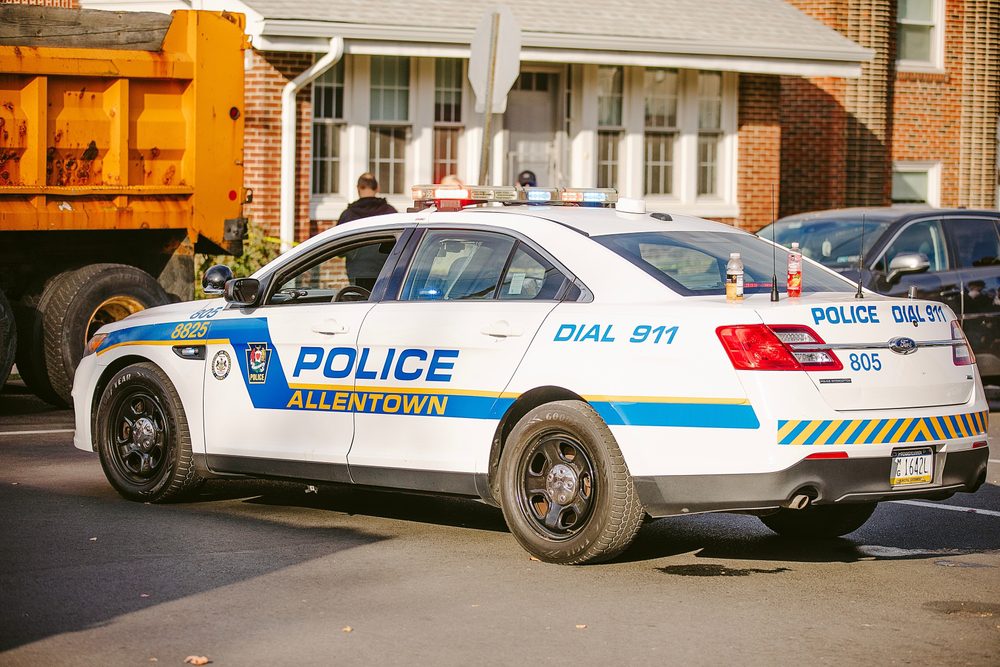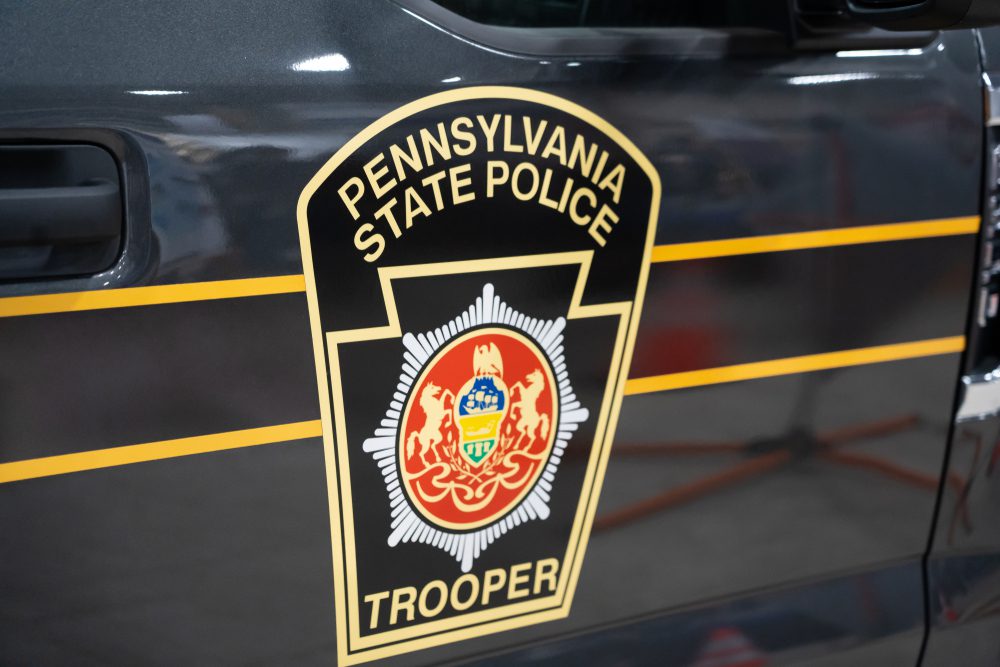An Allentown man filed a civil lawsuit on Wednesday after a police officer drove a cruiser at him on the sidewalk, according to the complaint. Phil Rishel, 25, is being represented by attorneys from the free speech organization, Foundation for Individual Rights and Expression, or FIRE.
The lawsuit names the city of Allentown and two police officers, Sgt. Christopher Stephenson and now-retired Officer Dean Flyte.
The Allentown mayor’s office, the city’s chief of police and the assistant chief of police did not respond to multiple emails from the Capital-Star requesting additional information.
A video apparently taken by Rishel and released by FIRE shows Rishel standing on the sidewalk beside a “no trespassing” sign outside a local police precinct.
“That’s a nice sign. Too bad it doesn’t apply to the public sidewalk,” Rishel says from behind the camera. The video then cuts and shows a marked SUV emerging from the parking lot and driving onto the sidewalk towards Rishel.
“You just f–king hit your own building, you dumb piece of s—,” Rishel says as the cruiser appears to scrape the wall of the lot’s entrance.
The video shows the SUV’s sirens blare as it continues towards Rishel, who puts a lamppost between himself and the car. The officer then drives around the post, back onto the sidewalk, and continues towards Rishel. The lawsuit alleges the vehicle was driven by Flyte, who the lawsuit says retired later last year.
Zach Silver, an attorney with FIRE, said the video was cut down from more than an hour of footage taken by Rishel on March 26, 2024, when the alleged incident took place, and March 27, 2024, when, according to the lawsuit, Rishel was charged with loitering and disorderly conduct.
Footage from the second day appears to show Rishel back at the police precinct and continuing to film. An officer, identified in the lawsuit as Stephenson, threatens him with citation or arrest and says, “you’re not protesting. You’re being a nuisance.”
Both charges were ultimately dropped or dismissed on appeal.
According to Rishel, he’d made a habit of filming the Allentown police from the sidewalk outside their precincts beginning in 2023. On his near-daily bike rides, he would sometimes stop outside police precincts and pull out his cellphone.
It was a form of protest against what he claims is a pattern of excessive force and First Amendment violations by the department.
“There were several incidents with the Allentown Police Department that just really made me realize there was a larger issue going on,” Rishel told the Capital-Star.
He cited the city’s $400,000 settlement with a man named John Perez, who was allegedly beaten and had his nose broken by officers. All charges against Perez, who was accused of disorderly conduct and resisting arrest, were dropped.
There was also a 2015 lawsuit brought by Eli Heckman, who said he was shoved to the ground by an officer after filming police use a stun gun on another man.
“That’s what made me want to go out there and take the protest to their doorstep, their police department building, and let them know that they’re being scrutinized,” Rishel said.
Often, Rishel said, it was uneventful, and a number of officers were friendly.
But other officers, he said, would blare sirens or shine spotlights at him. At least once, he had his home address shouted at him.
March 26th, the day an officer allegedly drove a car at him, was Rishel’s first time filming outside the 10th street precinct, which he was passing on his bike.
“It was just shocking,” Rishel said. “I’d had bad experiences before, but never anything like that.”
After the incident, Rishel received a summons saying he’d been charged with loitering and disorderly conduct. The disorderly conduct charge was dismissed and the loitering charge was ultimately overturned by the Pennsylvania Court of Common Pleas.
“While I was fighting the criminal charges I went back to the main Allentown station just to let them know they didn’t scare me off,” Rishel said. “ I didn’t want to set the precedent that you could get people to stop protesting by criminally charging them.”
Rishel then reached out to several advocacy organizations like FIRE and the American Civil Liberties Union of Pennsylvania. FIRE responded first.
Rishel has stopped his filming since getting involved with the organization on the advice of his lawyer
“Any interaction could influence the case,” Rishel said. “We’re kind of playing it safe at this point.”
Silver, the FIRE attorney, said the civil lawsuit has three goals: compensation for Rishel, a recognition of his right to record video, and to require the city of Allentown to train officers on citizens’ First Amendment rights.
Silver said that FIRE filed a Freedom of Information request for documents with the department seeking materials used to train officers on First Amendment rights, free speech activities, protest rights and filming or photography. A response from the city, shared with the Capital-Star, said no such materials existed, but that the Pennsylvania Municipal Police Officers’ Education and Training Commission may have them.
Neither the police chief nor the mayor’s office responded to questions from the Capital-Star about the department’s training regimen.
“It’s not just the right to record. It’s not just the right to film police officers,” Silver said. “Police officers can’t stop someone from speaking just because they don’t like what they say.”
The civil lawsuit was filed in the U.S. District Court and a jury trial was requested.
In Pennsylvania, like elsewhere in America, it’s legal to film and photograph places plainly visible from public spaces.
The commonwealth , however, has what’s known as a two-party consent law, meaning conversations can not be recorded without consent from multiple parties. A 2015 court ruling in Fields vs. the City of Philadelphia, however, found it was legal to film police in public.










